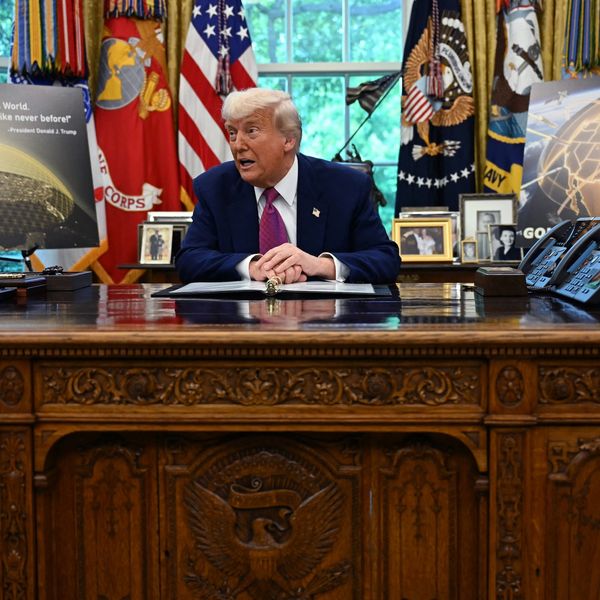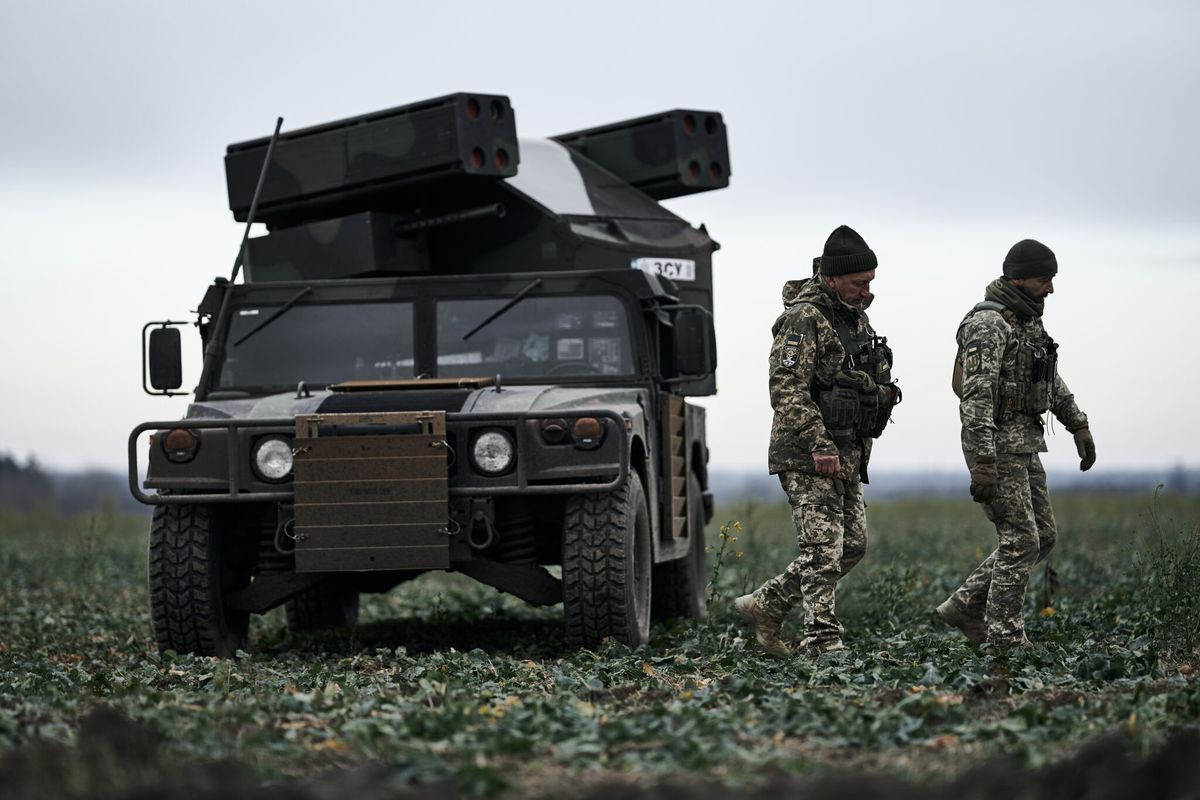OPINION — Those of us old enough to remember the 1980s scandal of the Defense Department paying $640 for a toilet seat for the C-5 Air Force transport plane will see a more modern version in the activities of TransDigm Group, Inc., as disclosed at a House Committee on Oversight and Reform hearing last Wednesday.
This time, as hearing Chairman Rep. Ro Khanna (D-Calif.) described it, TransDigm sold a spare part for the F-5 fighter that the Defense Department inspector general said cost $173 to make for a price of $6,986, giving them an excess price of 3,930 percent.
What makes TransDigm’s activities different is its business model which Khanna said was “identifying relatively small companies that make spare parts for the military – especially parts that no other companies make. TransDigm buys up these small companies, purchases the rights to produce their products, and then jacks up the prices. The Pentagon has to pay knowing that they have a monopoly.”
When asked about TransDigm at a House hearing the next day, Under Secretary of Defense Comptroller David Norquist said, “The model that this company did is not a partner firm, it's a predatory approach."
This is not a new problem with TransDigm.
Glenn A. Fine, the Defense Department Principal Deputy Inspector General, told the committee, “We first audited TransDigm in 2006, and found similar findings to our recent report. In our 2006 audit, we concluded that the DoD was unable to effectively negotiate prices for spare parts procured from TransDigm subsidiaries. Using cost analysis, we calculated that the DLA [Defense Logistics Agency] had paid approximately $5.3 million more than the fair and reasonable price for 77 parts.”
Also, it’s not a problem just with TransDigm. Fine told the panel, “In 2015 we issued a summary report on the contracting problems with spare parts pricing and inventory that the DoD OIG [Office of Inspector General] had identified and reported. The summary report noted that since 1998, we have issued 32 reports related to spare parts pricing. In only 3 of the 32 reports did we find that the DoD had obtained fair and reasonable prices for spare parts.”
Despite its record of overcharging, TransDigm remains an important, major, supplier of spare parts for important weapons systems.
According to its own 2018 annual report, TransDigm provides components to the “Boeing AH-64 Apache, CH-47, C-17, F-15, F-18, KC46 Tanker, P-8 and V-22, the Airbus A400M, the Lockheed Martin C-130J, F-16 and F-35 Joint Strike Fighter, UH-60 Blackhawk helicopter, the Northrop Grumman E-2C Hawkeye, the General Atomics Predator Drone and the Raytheon Patriot Missile.”
TransDigm “owns or exclusively licenses [for] more than 2,500 spare parts for military aircraft,” Assistant Secretary of Defense for Acquisition Kevin M. Fahey told the panel.
The company, itself, has been a fast-growing giant with a profit margin of over 40 percent and overall sales to civilian and government growing from $2.3 billion in 2014, to $3.8 billion in 2018, according to its annual report. Since 2014 its per-share-earnings has more than doubled, and its stock has shot up from $186 in 2014, to $457 as of last Friday.
The Defense IG audit determined that TransDigm made excess profits [above 15 percent] on 46 of 47 sampled spare parts the company had sold to the Defense Logistics Agency (DLA) and the Army between January 2015 and January 2017, according to Rep. Khanna. “TransDigm earned $16.1 million in excess profit on 46 of [those] 47 parts, it sold to DLA and the Army for $26.2 million,” Khanna said.
Kevin Stein, Chief Executive Officer of TransDigm, told the committee suppliers that his company follows the “‘razor/razorblade’ pricing strategy [that] is common in the industry.” By that, he meant costly, original, complex parts, say for an aircraft, are developed by the original contractor where a limited number are purchased. But during the plane’s 40-year later life, those who own the license for the original small parts can charge higher prices for needed spare parts as the original ones wear out. Then, as Stein put it, they are “are able to realize higher margins and finally achieve an attractive return on their capital investments in the ‘aftermarket.’”
However, as Khanna and several committee members pointed out, most often TransDigm did not develop the original part; it had bought the small company that did, and then had the only license to produce those parts.
One proposal put forward by DoD IG Fine was for Congress to legislate that military contract officers can demand certified cost figures from contractors where purchases are below $2 million in order to determine whether prices offered are fair and reasonable. Under legislation passed last year, that figure was raised from $750,000. Even then, the Federal Acquisition Regulation (FAR) states contracting officers should obtain uncertified cost or pricing data from the contractor when it is the only means left (emphasis added) to determine whether the price is fair and reasonable, according to Fine.
Assistant Secretary of Defense for Acquisition Fahey told the panel, “When contracting officers requested cost data for 16 of the 47 parts reviewed, TransDigm denied 15 requests for uncertified cost data and fulfilled the request for certified cost data for only one part.” That left the contracting officers “with the limited options of either buying the parts without receiving cost data from TransDigm, or not buying the parts needed to meet mission requirements,” Fahey said.
When asked why TransDigm refused to supply its cost figures to contract officers who did ask, CEO Stein said those numbers were not required to be provided by government regulations.
Assistant Secretary Fahey agreed that what TransDigm has done is not illegal. But he added, “Do I consider gouging our taxpayers for excessive costs immoral and unconscionable in the face of getting our warfighters what they need to fight? Yes.”
Fahey said DLA and Army have “asked TransDigm for a voluntary refund on parts that were confirmed to be overpriced.” He added, however, the Defense Department “cannot prevent a company from exploiting a position where they own the intellectual property and are in a sole source position.”
At the hearing, Khanna asked Nicholas Howley, Executive Chairman and Founder and TransDigm, if the company was planning to refund the $26 million excess profits. Howley answered that it was under study. Howley, whom The Wall Street Journal listed as receiving $61 million in salary and options in 2017 (third highest paid CEO among Standard and Poor’s 500 leaders), was then asked if he would pay it himself and he refused to answer.
TransDigm warned its stockholders in a recent report filed with the Securities and Exchange Commission that “the U.S. Government may seek to review our costs to determine whether our pricing is ‘fair and reasonable.’” The company also said, “We could be subject to providing a refund to the U.S. Government or we could be asked to enter into an arrangement whereby our prices would be based on cost or the DoD could seek to pursue alternative sources of supply for our parts. Any of those occurrences could lead to a reduction in our revenue from, or the profitability of certain of our supply arrangements with, certain agencies and buying organizations of the U.S. Government.”
Let’s see if Congress does follow through with new legislation.
Meanwhile, last Wednesday, Khanna said, “This hearing is not just about protecting American taxpayers but is also about our national security. I am hopeful TransDigm will agree to pay back to the taxpayer the excess profit they admittedly made on the backs of hard-working Americans.”
Read more Fine Print from Walter Pincus in The Cipher Brief












